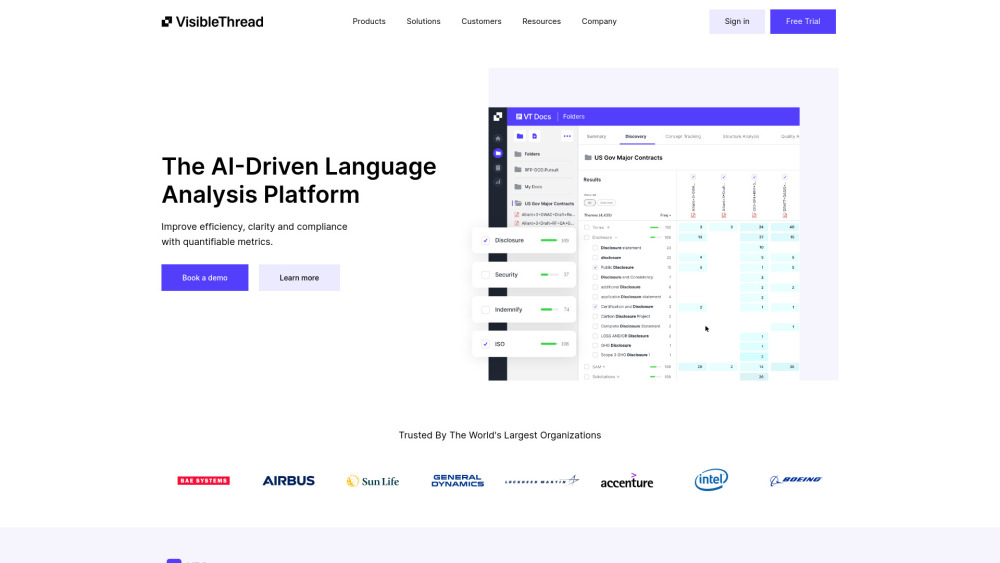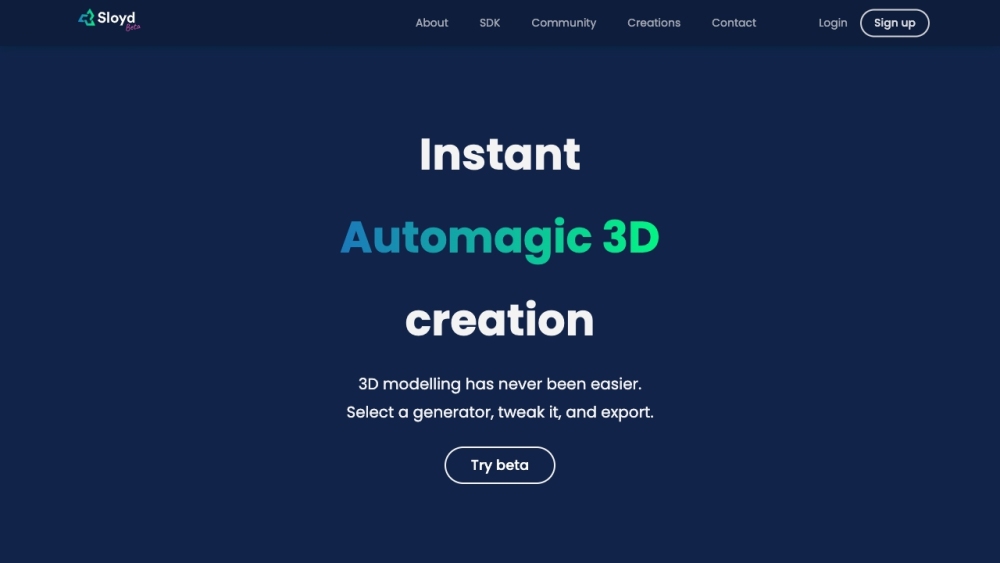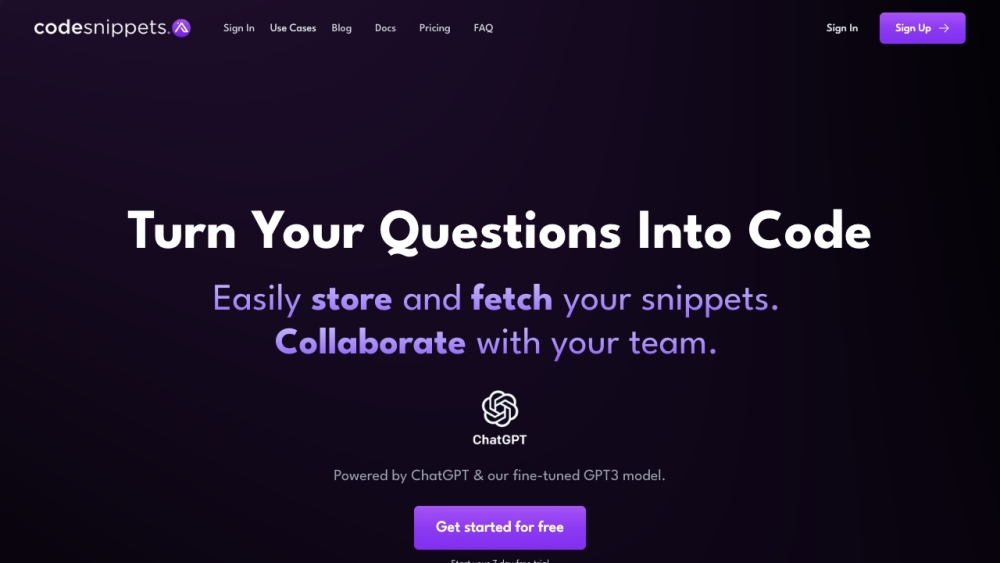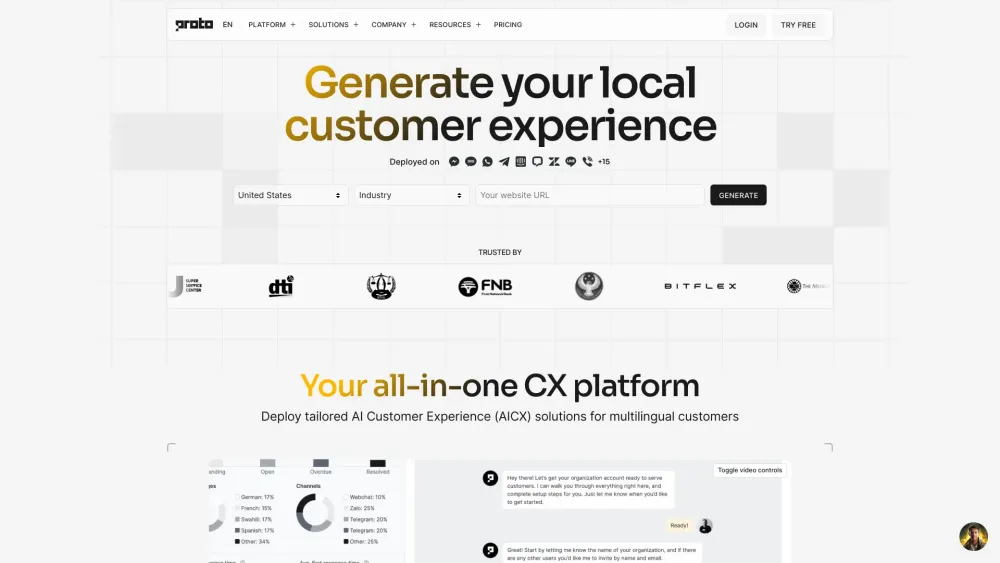Let Artificial Intelligence Dating Bots Connect with Each Other
Most people like

In today's fast-paced business environment, effective communication is crucial. Our AI-driven platform revolutionizes the way you approach business writing, providing tools that streamline your writing process while improving clarity and engagement. Whether you're drafting emails, reports, or presentations, this platform helps you craft compelling messages that resonate with your audience. Unlock your writing potential with our innovative technology designed to elevate your professional communication.

Discover Sloyd, an intuitive 3D modeling tool designed to simplify the creation of high-quality, optimized assets. With its customizable generators, Sloyd empowers creators to easily craft unique models tailored to their specific needs. Perfect for game developers, designers, and artists, Sloyd makes 3D modeling accessible and efficient.

Welcome to Code Snippets AI, your ultimate AI-driven code library designed to accelerate development and enhance collaboration among programmers. With our innovative technology, developers can code more efficiently and work together seamlessly.

Discover the power of inclusive customer experience (CX) automation and the benefits of multilingual contact center automation. Leverage innovative solutions to enhance engagement, streamline communication, and cater to diverse audiences. Transform your customer interactions by embracing technology that prioritizes inclusivity and linguistic diversity.
Find AI tools in YBX
Related Articles
Refresh Articles
